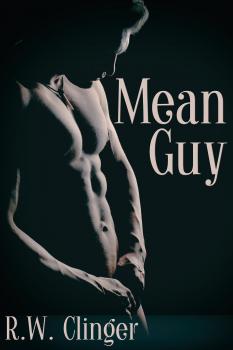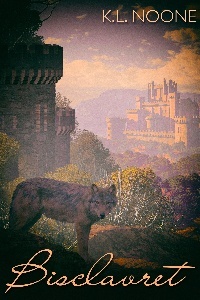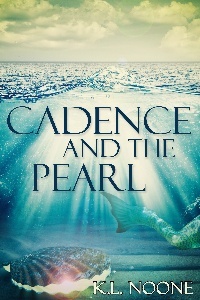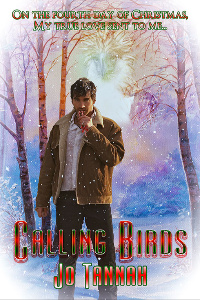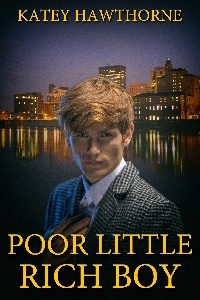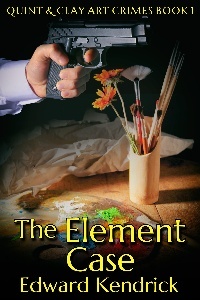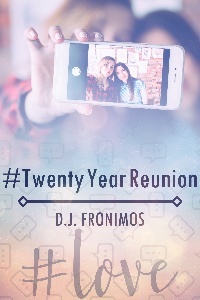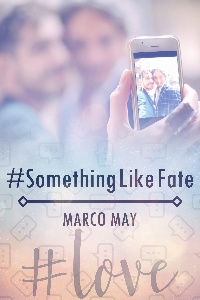A Frost spirit who runs a coffee shop. A Cupid who works as a divorce lawyer. And magic in the air ...
Raine’s never been a conventional Cupid. He likes organization, his job as a successful lawyer, and black coffee, and he dislikes messiness, physical and emotional. He tries hard not to use his powers, because he’d rather not manipulate anyone’s desires, and he’s not planning to fall in love himself -- and he wouldn’t trust it if someone fell in love with him. But the owner of Raine’s favorite coffee shop is endlessly patient, kind even in the face of sarcasm, and an artist with flavors and window decorations ... and he could even challenge Raine’s resolutions about love.
Don enjoys his life. Even though he’s a Frost, he finds comfort in giving people warmth: good coffee, a cozy refuge from the rain, holiday decorations, and overall cheer. But one gorgeous Cupid seems immune to Don’s cheerfulness -- and he keeps coming back, day after day. Fortunately, Don’s always liked a challenge, and now he’s determined to make Raine smile at least once ... and he’s discovering that Raine’s sarcasm hides a generous and lonely heart, keeping the world at bay.
And if Don and Raine can learn to trust each other -- with new coffee flavors, with their hopes for the future, and with their hearts -- the Frost and the Cupid just might find their own magical happy ending.
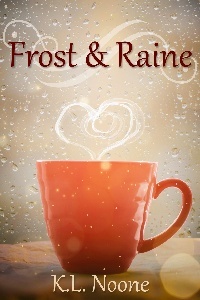
May came in with riotous explosions of color: flowers in the newly landscaped area in front of the building, wide arching blue skies, clean clear golden sun like the gleam of a newly opened treasure-chest. Ausriné and Kit and Annie got along disturbingly well, bonding over late nights and superhero television shows; the coffee shop hummed along happily, and Don experimented with lavender, honey, rosewater, and springtime violets.
The Sunrise Children -- they had different names, different traditions, but all laughed and chattered and glowed with the brilliance of the Personification of new dawns, so Don’d collectively nicknamed them for the sun -- popped in and drank coffee and herbal tea, and laughed and left warmth and fluttering rainbow streamers in their wake. One of them, a shameless and adorable young man with emerald eyes and new-coin copper hair, winked at him when leaving.
Raine, around a caffeine infusion -- mid-morning, as usual, a break from whatever the tangled law-office work of the day might be -- commented, “You’d end up exhausted. Wouldn’t be worth it.”
“I wasn’t looking, and how do you know, anyway?” Don collected abandoned cups -- the Sunrise Children did tend toward forgetful but forgivable chaos -- and wiped down the counter. “As if you even like people.”
“I don’t like most people,” Raine said. “They’re reckless and clumsy and made of desires. Walking complications. Which includes humans and Personifications. And you don’t want to go there. The perky good-morning-but-all-day-long sexual stamina always sounds nice, but at some point you need to eat and sleep. And also he’s got no fashion sense. Those sandals? Honestly.”
“You can’t comment,” Don said. “You live in suits. You don’t own anything that’s not a suit.”
Raine looked down at himself. Today’s suit was dark blue, with a lighter blue shirt, and small silver knotwork cufflinks, so discreet they must’ve cost a minor fortune. The cut was good, so very good: it showed off his slender waist and long legs. “I dress like an adult. With an actual job.”
“Why a divorce lawyer, again? You’re a Cupid.”
“I don’t know,” Raine said. “Why are you a barista?”
Raine knew he owned the place. This was therefore deliberate. Don let it go.
He propped elbows on the counter, instead. “I take it back. You’re not a lawyer. You’re a cactus.”
“I’m a what,” Raine said, setting down his coffee-cup. Don considered this a success. “In what universe am I a succulent?”
“Prickly. Pointy. But softer inside. Full of water.” He had the feeling this was not helping. “Good for rescuing people when they’re lost and needing ... water.”
“I don’t think you’re very good at either complimenting people or insulting them,” Raine said. “I can’t tell what that was meant to be.” But his eyes had gone softer, less spiky, almost curious. The green and gold flickered, reflective. This green was more complicated than the cheerful flirtation of the Sunrise Child, less pure but more multifaceted. Don liked the complications.
“Never mind,” he said, and slid a mug across the bar. “Try this.”
Raine regarded dark swirls with misgiving. “I don’t like sweet coffee.”
“I know.”
“I don’t like gifts.”
“It’s not a gift.”
“Then --”
“I’m experimenting. You’re helping me out. Try it.”
Raine glared at him but took a sip. Then looked surprised, and took another. “Chipotle spice?”
“And cocoa. Extra dark. I’m thinking about summer.”
“It’s only May. Your windows have spring flowers. Which are melting.”
“That happens,” Don said. “Ice. In warm weather. What do you think?”
“It doesn’t bother you?” Raine took another sip. Then licked his lips, a swipe of pink tongue that Don thoroughly failed not to watch. “That it doesn’t last.”
“No,” Don said. “It’s there for as long as it’s there.”
“But it doesn’t stay.”
“I’m not out to conquer the art world. It’s just a family talent. And it makes people smile when they see it.”
“And that’s what you want,” Raine said. “Making people smile.” He looked slightly tired, Don thought, though there wasn’t a specific reason for the thought. Something around those eyes. Resignation, perhaps, or weight. Not a slump of those shoulders, because Raine was too self-aware and too put-together for that. Something, though.
He said, looking at Raine, “I like people being happy. I also like cacti.”
“You’re the strangest Frost I’ve ever met,” Raine said. “Succulents and flowers. What happened to winter and ice?”
“I can make ice any time.” Don put fingertips on the counter: cold rose, gleamed, faded. “What do you think of the spice level?”
“People will love it,” Raine said. “They always do. I’m sure the ray of morning sunshine with the unsubtle winking will love it too. I have to get back to work.”
“He’s too young for me,” Don said. “And he has no fashion sense. Those sandals.”
“You’re not that old,” Raine said. “I’m taking this with me.” This meant the mug, which was not one of the disposable to-go ones.
“Bring it back,” Don said, and the door opened as the early lunch crowd came in. Raine gave him a moderately offended scowl, and left with both coffees, the everyday and the new.


